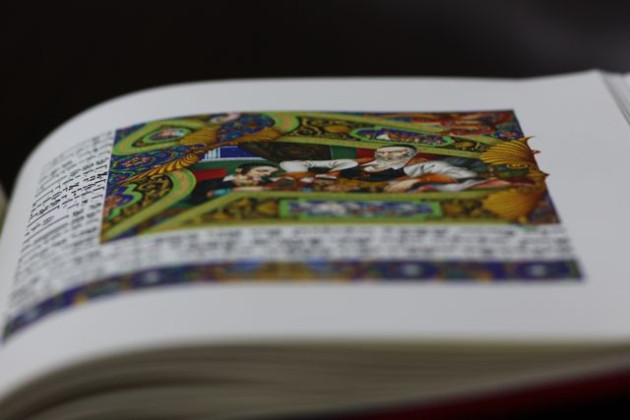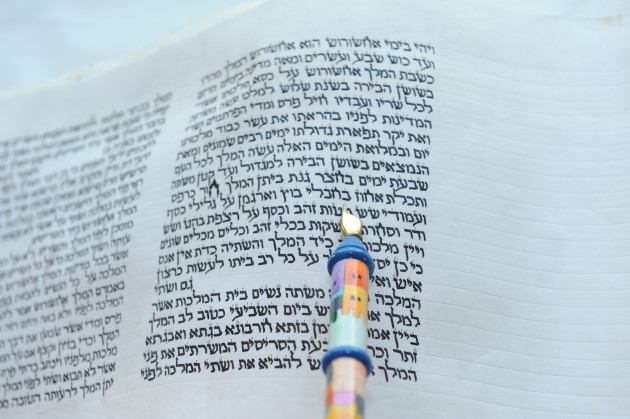Author Archives: Rebecca Honig Friedman
April 6, 2017 by Rebecca Honig Friedman
The Stories We Tell

https://www.flickr.com/shawncalhoun
The Passover Seder is one of the most widely observed of Jewish rituals, and it’s no wonder. Copious amounts of wine, food, and a good story are bound to draw a crowd. With the focus all too often on the brisket and Merlot (or in many Jewish homes, the Malvasia), it’s easy to forget that the food and wine flow – pun intended – from the story, and not the other way around.
Passover is at heart a storytelling holiday. For it is written, “And you shall tell your child on that day saying. ‘Because of this God did for me by bringing me out of Egypt.’” (Shmot 13:8). Rooted in this verse, the Passover hagadah is essentially a children’s book, the seder an extended bedtime story. The Exodus is in many ways the story of the Jewish people––the one where we become who we will be (for a while, anyway), a self-governing nation with our own homeland. The seder, then, is not just about telling a story but teaching our children––and reminding our adult selves––about our collective values and identity: This is who we are, this is where we come from, this is what we believe. The matzah, bitter herb, and the rest of the items on the seder plate are not just symbolic foods but visual and gustatory aides to help bring the story to life, to make the pain and suffering of slavery, and the elation at being free, into something tactile, experiential and real. We are not just obligated to tell the story, but to feel as if we ourselves are going out of slavery in Egypt, wandering through the desert, and then ultimately finding ourselves a free and sovereign people in the land of Israel. Hallelujah!
- No Comments
March 10, 2017 by Rebecca Honig Friedman
Layning Megillah for My Daughter

Photo credit: Chefallen
On Purim night, for the eleventh year in a row, I will be chanting portions of Megillat Esther for a women’s only reading at The Stanton Street Shul, a modern Orthodox synagogue on the Lower East Side of Manhattan. Every year I feel a special privilege to be able to participate in what is still, to my knowledge, the only such megillah reading by women and for women in Lower Manhattan. But this year feels especially important. First, because it will be my first Purim as the mother of a daughter. Suddenly I evaluate everything I do in relation to what kind of example I am setting for her. Second, because in our current political moment—a bitterly divided country, religious and ethnic minorities being openly targeted, and a president with authoritarian inclinations— both the lessons of the Purim story and the lessons I have learned from reading that story aloud feel especially relevant.
When we began the Stanton Women’s Megillah reading, back in 2006, I was a newly married 24-year-old, just beginning to find my identity as an adult while still living in the same neighborhood and the same Jewish community in which I had grown up. Stanton was not the shul I had attended as a child but the one I chose to join as a grown-up. I liked Stanton because it was laid-back and eclectic, a place where everyone seemed to be accepted no matter how strictly they observed outside of shul, or how closely they hewed to the normative Orthodox mold.
- 2 Comments
 Please wait...
Please wait...